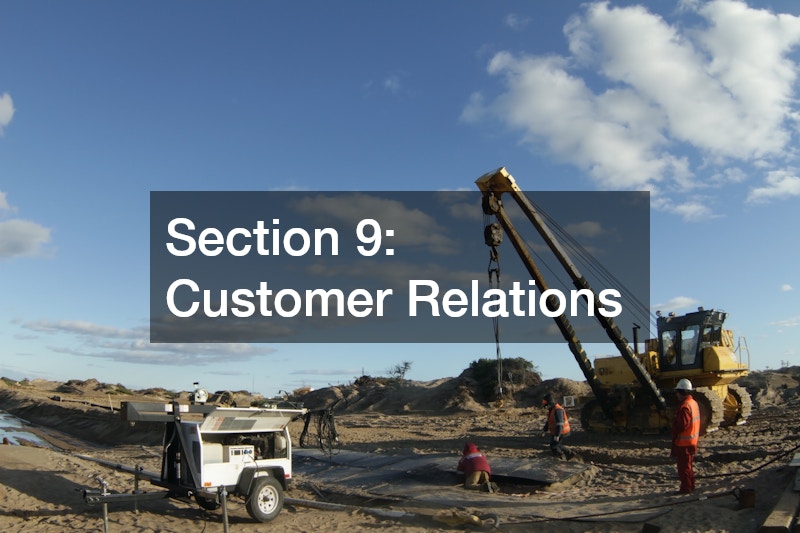Section 1: Market Research
Market research is essential for a local crane rental business to understand the needs and demands of its target customers. By conducting thorough market research, a crane rental company can identify potential clients, assess the competition, and determine the pricing strategy that will attract customers while ensuring profitability.
When conducting market research for a crane rental business, it is important to gather data on construction projects in the area, the types of cranes in high demand, and the pricing offered by competitors. This information will help the business tailor its services to meet the specific needs of customers in the local market.
By analyzing market trends and customer preferences, a crane rental business can position itself as a reliable and competitive option for construction companies in the area. Market research allows the business to make informed decisions that will drive growth and success in the industry.
Section 2: Business Plan
A comprehensive business plan is crucial for the success of local crane rental companies. The business plan should outline the company’s goals, target market, pricing strategy, marketing tactics, and financial projections. A well-thought-out business plan will serve as a roadmap for the business’s growth and development.
When creating a business plan for a local crane rental business, it is important to consider factors such as equipment acquisition, staffing requirements, and regulatory compliance. The business plan should also address the competitive landscape and identify opportunities for growth and expansion in the market.
By creating a detailed and realistic business plan, local crane companies can attract investors, secure financing, and establish strong foundations for long-term success. The business plan will help the company stay focused on its objectives and navigate challenges effectively.
Section 3: Legal Requirements
Starting a local crane company requires compliance with various legal requirements to ensure the safety of operations and protect the business from potential risks. It is essential to obtain the necessary permits, licenses, and insurance coverage to operate legally in the industry.
By understanding and adhering to legal regulations, a local crane rental business can build trust with customers and demonstrate its commitment to safety and professionalism. Compliance with legal requirements also minimizes the risk of fines, penalties, and legal disputes that could harm the business’s reputation.
To ensure compliance with legal regulations, a professional crane rental business should work closely with legal advisors, stay informed about industry standards, and regularly update its policies and procedures. By prioritizing legal compliance, the business can establish a solid foundation for long-term success in the market.

Section 4: Equipment Acquisition
Acquiring the right equipment is crucial for the success of a local crane business. The business must invest in high-quality cranes and other heavy equipment to meet the needs of construction companies and ensure the safety and efficiency of operations.
When selecting equipment for a local crane business, it is important to consider factors such as the type and size of cranes needed, the condition of the equipment, and the supplier’s reputation. By sourcing quality equipment from reputable vendors, the business can deliver reliable and efficient services to its customers.
Regular preventative maintenance inspections are also essential to keep the equipment in optimal condition and prevent breakdowns or accidents. By investing in equipment maintenance and repair, a local crane rental business can extend the lifespan of its assets and provide consistent, high-quality service to customers.
Section 5: Pricing Strategy
Determining the right pricing strategy is essential for a local crane rental business to attract customers and generate revenue. The business must consider factors such as equipment costs, operational expenses, market competition, and customer demand when setting prices for its services.
By conducting a thorough analysis of the local market and competitive landscape, a local crane rental business can identify pricing trends and develop a strategy that is competitive yet profitable. The business should also consider offering package deals, discounts, and incentives to attract new customers and retain existing ones.
Regularly reviewing and adjusting pricing strategies based on market conditions and customer feedback is crucial for the success of a professional crane rental business. By staying flexible and responsive to changing trends, the business can optimize its pricing strategy and maximize revenue.

Section 6: Marketing and Advertising
Effective marketing and advertising are essential for a crane rental business to reach its target audience and attract customers. The business must develop a strong brand presence, communicate its unique value proposition, and engage customers through various marketing channels.
When advertising a crane rental business, it is important to use a mix of traditional and digital marketing strategies to reach a wide audience. The business can use online platforms, social media, industry events, and promotional materials to raise awareness and generate leads.
By investing in marketing and advertising efforts, a local crane rental business can position itself as a trusted and reliable service provider in the industry. The business should focus on building relationships with customers, delivering exceptional service, and nurturing long-term partnerships for sustained growth.
Section 7: Insurance Coverage
Insurance coverage is essential for a local crane rental business to protect its assets, employees, and customers from potential risks and liabilities. The business should consider various types of insurance, such as liability insurance, worker’s compensation, and equipment insurance, to ensure comprehensive coverage.
Regularly reviewing and updating insurance policies to align with changing business needs and industry regulations is important for a local crane rental business. By working with reputable insurance providers and assessing coverage options, the business can safeguard its operations and reputation.
Section 8: Safety Protocols
Ensuring the safety of operations is a top priority for a local crane rental business to protect employees, customers, and the public from accidents and injuries. The business must implement strict safety protocols, provide ongoing training, and conduct regular inspections to maintain a safe work environment.
By following industry best practices and adhering to safety regulations, a professional crane rental business can minimize the risk of incidents and liabilities. Safety protocols should address equipment usage, maintenance procedures, emergency response plans, and staff training to promote a culture of safety and accountability.

Section 9: Customer Relations
Building positive relationships with customers is crucial for a local crane service to foster loyalty, trust, and repeat business. The equipment rental business must prioritize customer satisfaction, communication, and responsiveness to deliver exceptional service and exceed customer expectations.
By listening to customer feedback, addressing concerns promptly, and providing personalized solutions, a local crane rental business can build strong relationships and earn customer loyalty. The business should also engage with customers through various channels, such as social media, email, and in-person interactions, to stay connected and demonstrate its commitment to service excellence.
Section 10: Staffing Requirements
Recruiting and training the right staff is essential for a professional crane rental business to deliver quality service, build a strong team, and maintain operational efficiency. The business should hire skilled operators, technicians, and support staff who are experienced, reliable, and safety-conscious.
When recruiting staff for a local crane rental business, it is important to conduct thorough background checks, verify certifications, and provide comprehensive training programs. By investing in employee development and safety training, the business can ensure that its staff are competent, knowledgeable, and capable of delivering exceptional service to customers.
Regular performance evaluations, feedback sessions, and team-building activities are important for maintaining a motivated and engaged workforce in a local crane rental business. By recognizing and rewarding employee contributions, the business can foster a positive work culture and drive business growth.
Section 11: Operational Efficiency
Streamlining operations is essential for a heavy equipment rental business to maximize productivity, reduce costs, and deliver quality service to customers. The business must identify areas for improvement, implement efficient processes, and leverage technology to optimize its operations.
By adopting tools and technologies such as fleet management software, scheduling apps, and project management tools, a local crane rental business can automate tasks, track performance metrics, and improve decision-making. Operational efficiency enables the business to minimize downtime, increase profitability, and meet customer demands effectively.
Regularly evaluating workflows, performance indicators, and customer feedback is important for maintaining operational efficiency in a local crane rental business. By continuously optimizing processes, investing in training, and embracing innovation, the business can stay competitive and adapt to changing market conditions.
Section 12: Financial Management
Effective financial management is crucial for the success of a local crane rental business to maintain profitability, manage cash flow, and plan for growth. The business must develop a solid financial strategy, track expenses, and monitor revenue to ensure long-term sustainability.
When managing finances for a local crane rental business, it is important to set realistic budgets, maintain accurate records, and monitor key performance indicators. Regular financial audits, cash flow projections, and expense reviews can help the business identify areas for improvement and make informed decisions that support growth and profitability.
By working with financial advisors, accountants, and industry experts, a professional crane rental business can develop robust financial systems, implement sound investment strategies, and navigate economic challenges effectively. Financial management is essential for building a strong financial foundation and driving business growth in a competitive market.
Section 13: Growth Strategies
Scaling and growing a local crane rental business requires strategic planning, innovation, and a proactive approach to market opportunities. The business should identify growth potential, diversify its services, and expand its customer base to achieve long-term success and sustainability.
By exploring new markets, forming strategic partnerships, and investing in marketing initiatives, a professional crane rental business can expand its reach and increase revenue. The business should also leverage industry trends, technological advancements, and customer feedback to drive innovation and stay ahead of the competition.
Continuously evaluating growth strategies, monitoring market trends, and adapting to changing customer needs are essential for the success of a professional crane rental business. By staying agile, responsive, and forward-thinking, the business can position itself for growth and establish a strong presence in the industry.
Section 14: Competition Analysis
Conducting a competitive analysis is essential for a crane rental business to understand the strengths, weaknesses, and opportunities of its competitors. By evaluating competitor pricing, service offerings, and customer feedback, the business can identify ways to differentiate itself and stay ahead in the market.
When analyzing competition in the professional crane rental industry, it is important to assess market share, customer satisfaction, and brand reputation. The business should also monitor competitor strategies, marketing tactics, and industry trends to identify gaps and opportunities for growth.

Section 15: Sustainability Practices
Adopting sustainable practices is important for a local crane rental business to minimize its environmental impact, reduce waste, and contribute to a greener future. The business should prioritize energy efficiency, waste management, and eco-friendly initiatives to promote sustainability and social responsibility.
By investing in green technologies, recycling programs, and emission reduction strategies, a professional crane rental business can reduce its carbon footprint and promote environmental stewardship. Sustainability practices demonstrate the business’s commitment to sustainability, attract environmentally conscious customers, and enhance its reputation in the market.
Regularly assessing sustainability goals, measuring progress, and engaging stakeholders are important for maintaining a sustainable business model in a local crane rental company. By integrating sustainability into its operations, the business can create long-term value, drive innovation, and support a healthier planet for future generations.
Section 16: Future Outlook
The future of the local crane rental industry is promising, with opportunities for growth, innovation, and expansion on the horizon. As construction company projects increase in complexity and scale, the demand for crane rentals is expected to rise, presenting new markets and revenue streams for professional crane rental businesses.
To stay ahead of industry trends and innovations, local crane rental companies should embrace technology, adopt best practices, and invest in training and development. By anticipating customer needs, diversifying service offerings, and differentiating their brand, businesses can position themselves for long-term success and sustainability in the market.
By prioritizing customer relations, employee training, operational efficiency, financial management, and sustainability practices, local crane rental businesses can differentiate themselves, drive growth, and establish a lasting presence in the industry. With a focus on innovation, quality service, and continuous improvement, businesses can navigate challenges, seize opportunities, and achieve long-term success in the dynamic and evolving professional crane rental market.



